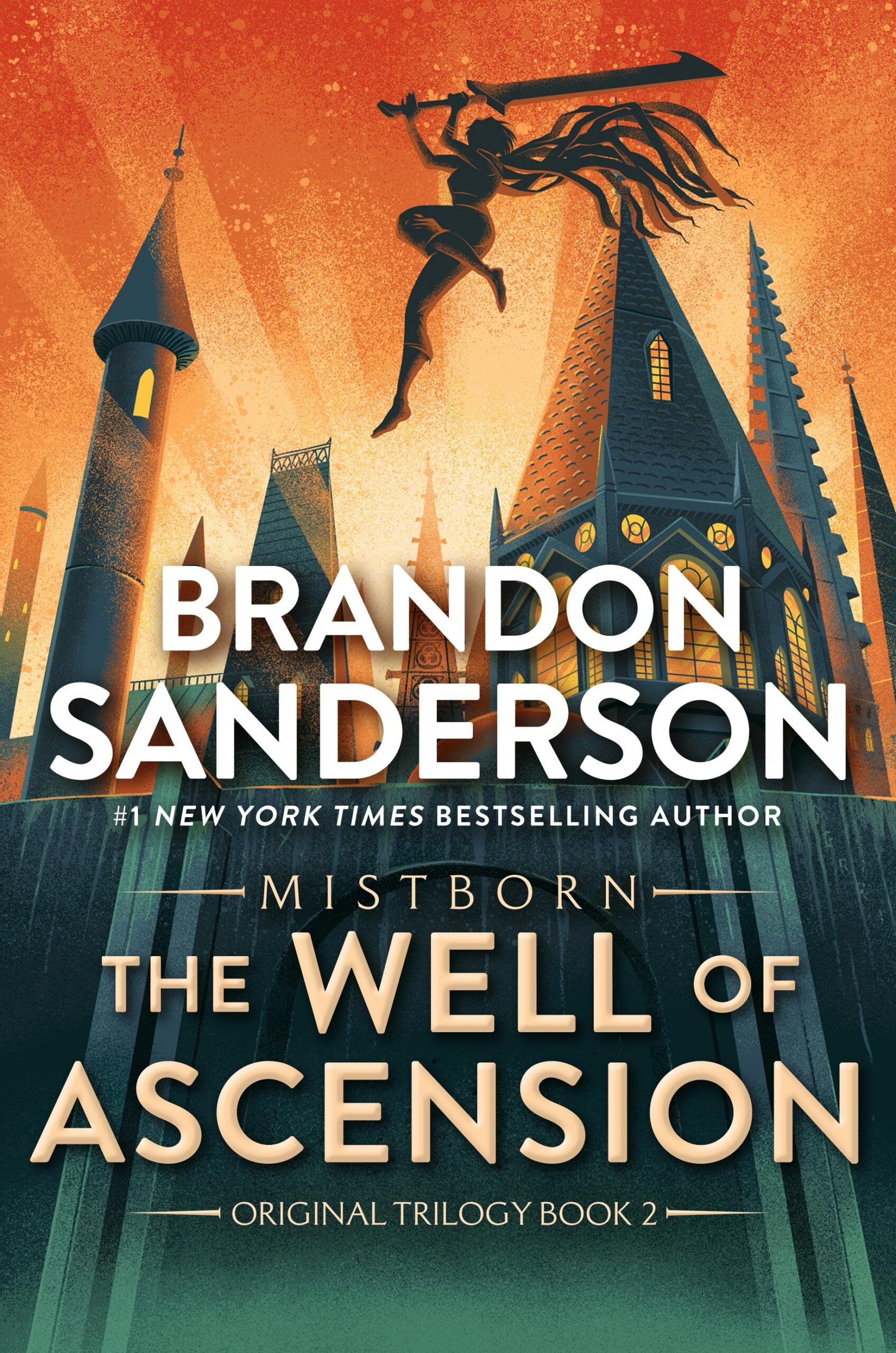
The Well of Ascension
47
by Sanderson, BrandonVin grapples with her growing detachment from the violence she commits, disturbed by her own indifference. Sitting on her balcony in Luthadel, she senses the presence of the mist spirit and the increasingly powerful thumping of the Well of Ascension, which draws her attention northward. Despite its pull, she feels overwhelmed by her failures in love, duty, and protection, stretched too thin to address the many demands on her—unfinished research, unresolved suspicions about her crew, and the incomplete assassination of Cett.
The chapter delves into Vin’s internal conflict about her role as Elend’s protector and the moral weight of her actions. She questions whether she has done enough to safeguard Elend’s ideals and the city, torn between his pacifism and the brutal reality of their situation. Zane’s voice lingers in her mind, challenging her to break free from being someone else’s weapon, yet she struggles to reconcile this with her love for Elend. The rhythmic pulsings of the Well amplify her sense of impending doom, pulling her further into introspection.
Vin’s conversation with OreSeur reveals her existential dread as she contemplates the consequences of her choices, each path representing an “end” of some kind. OreSeur’s pragmatic response—urging her to simply make a decision—contrasts with the wisdom she recalls from Sazed, highlighting her isolation and longing for guidance. The kandra’s bluntness and disdain for Terrismen add a layer of dark humor, underscoring the tension between Vin’s emotional turmoil and the stark realities of her world.
The chapter closes with Vin’s unresolved tension, poised between action and paralysis. The Well’s call, her fractured sense of purpose, and OreSeur’s unsentimental advice leave her at a crossroads, symbolizing the broader stakes of the narrative. Her quiet dread and the mist-shrouded setting create an atmosphere of foreboding, emphasizing the weight of her impending decisions on the fate of Luthadel and the world beyond.
FAQs
1. What internal conflict does Vin experience regarding her actions and emotions in this chapter?
Answer:
Vin grapples with a disturbing indifference toward the lives she has taken, which terrifies her because it represents a loss of her moral compass. This internal conflict is compounded by her feelings of failure in multiple areas—love, protection, and duty—as she reflects on being stretched too thin. The chapter reveals her struggle to reconcile her violent capabilities with Elend’s pacifistic ideals, leaving her questioning whether she should have done more to protect Luthadel (as referenced in her thoughts: “If she really loved Elend…wouldn’t she have done more?”).2. How does the Well of Ascension manifest itself to Vin in this chapter, and what significance does this hold?
Answer:
Vin perceives the Well of Ascension as a powerful, rhythmic thumping that grows increasingly intense—a sensation she interprets as its power returning to the world. This phenomenon is tied to her bronze Allomancy, as she burns the metal constantly to listen to its rhythm. The Well’s pull represents both a literal and metaphorical call to action, foreshadowing a pivotal choice Vin must make (evidenced by her statement: “It seemed that she couldn’t succeed at anything, lately…”). Its undefined “end” mirrors her unresolved dilemmas about her role and responsibilities.3. Analyze the contrasting perspectives Vin holds about her role—between being “someone else’s knife” and acting independently. How does Zane’s influence factor into this?
Answer:
Vin oscillates between two paradigms: Zane’s assertion that she is being used as a tool (“someone else’s knife”) and her loyalty to Elend, who rejects violence as a solution. Zane’s whisper—”Why do we always have to be someone else’s knives?“—challenges her to question her autonomy, yet Vin recognizes the flaw in his logic: Elend doesn’t demand her violence, even if his ideals create vulnerability. This tension underscores her broader crisis of identity—whether to embrace her lethal skills or align with Elend’s vision, leaving her paralyzed by indecision.4. How does OreSeur’s pragmatic advice contrast with the guidance Vin might have received from Sazed, and what does this reveal about her current state of mind?
Answer:
OreSeur offers blunt, action-oriented advice (“Just make the decision”), devoid of emotional support, which Vin notes differs sharply from Sazed’s “wise and comforting” counsel. This contrast highlights Vin’s isolation and longing for reassurance amid her existential turmoil. OreSeur’s dismissive attitude toward Terrismen (calling them “self-important”) further emphasizes Vin’s unmet need for guidance, as she faces monumental choices about the Well, her loyalty, and her identity without the mentorship figures she once relied on.
Quotes
1. “A PART OF VIN WASN’T EVEN bothered by how many people she had killed. That very indifference, however, terrified her.”
This opening line captures Vin’s internal conflict as she grapples with her growing detachment from violence, highlighting her moral deterioration and self-awareness of it.
2. “It seemed that she couldn’t succeed at anything, lately. Love, protection, duty. I’ve let myself get stretched too thin, she thought.”
This quote reflects Vin’s overwhelming sense of failure across all aspects of her life, showing her fractured mental state and the unsustainable pressures she faces.
3. “Why do we always have to be someone else’s knives?”
Zane’s haunting question represents the central tension in Vin’s arc - whether to embrace her role as a weapon or forge her own path, echoing throughout her internal monologue.
4. “The pulsings thumped against her, like the beats of a drum the size of the sun.”
This vivid metaphor conveys the overwhelming, almost cosmic power of the Well of Ascension calling to Vin, representing both temptation and destiny that she cannot ignore.
5. “I just have decisions to make. And, no matter which choice I make, it will mean an end.”
This concise statement encapsulates the chapter’s existential weight, showing Vin’s awareness that her coming choices will irrevocably change everything - for herself and her world.
